We went to a Syracuse shindig celebrating the 25th anniversary of the Robert Ingersoll Birthplace Museum. Run by the Center for Inquiry, a secular humanist organization, its first day featured presentations, the second a bus tour to Ingersoll’s and other freethought landmarks. About ninety attended.
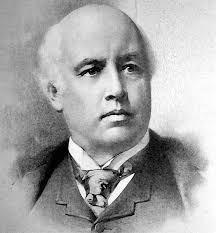
Ingersoll
Robert Green Ingersoll (1833-1899) was known as “The Great Agnostic.” A lawyer, he was America’s foremost public speaker in the late 19th century, traveling the country giving lectures, mostly anti-religious. People flocked to hear him. In those times, other kinds of public entertainments were almost nonexistent. And Ingersoll was such an engaging speaker that he always got a respectful hearing.
How different America is today. People were ignorant then, but knew they were. Now Americans are a little less ignorant but a lot more sure they know everything (regardless of empirical truth).
Ingersoll was a great humanist in every sense of the word — refuting the canard that “atheists believe in nothing.” Ingersoll believed in the power of human rationality to give us progress and good lives. That the happiness of sentient beings is the ultimate source of meaning. That the time to be happy is now, and the place is here, on Earth. That one’s happiness is entwined with that of others. And Ingersoll lived these principles, earning the love and admiration of everyone he touched.
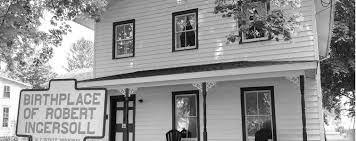
His birthplace museum is in Dresden, NY, a tiny town. We were shown a screenshot from “Tripadvisor” labeling the Ingersoll site “#1 of 1 things to do in Dresden.”
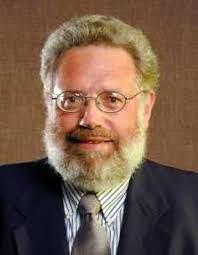
Flynn
Tom Flynn (editor of CFI’s Free Inquiry magazine) placed Ingersoll in the context of what he called “the Braid of Reform” in 19th Century America. The two great causes were abolition and women’s rights (including suffrage). Not all these movements’ adherents were religious freethinkers, but many were; and most freethinkers were abolitionists and suffragists. “Freethought” means thinking outside the box of traditional religious dogmas.
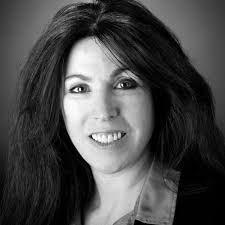
Blumner
Robyn Blumner heads the CFI. She noted that its $5 million budget is the largest for any U.S. secular organization, but is dwarfed by funding for the Christian right. “Campus Crusade for Christ” has a budget a hundred times larger. Blumner said, however, that we have reason, science, and truth on our side. Though truth used to have a bigger constituency.
One CFI program she discussed had particular resonance for me: “Secular Rescue.” I am a fearless blogger — not courageous, but literally fearless because in America there’s nothing to fear over what one writes. Not so in other countries, especially Muslim ones, where “blasphemy” is a crime, sometimes punishable by death; a Saudi blogger, Raif Badawi, was sentenced to ten years in prison and 1000 lashes (to be administered in installments). In Bangladesh there’s a vigilante crusade murdering “blaspheming” bloggers. “Secular Rescue” is engaged in protecting such people and even relocating them to safer places.
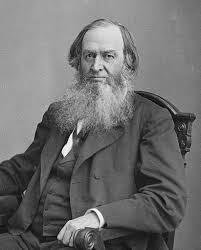
Smith
Norman Dann spoke about Gerrit Smith (1797-1874), another great figure you never heard of. Extremely rich, all Smith wanted to do with his money was to advance human rights, especially abolition. He freed a lot of slaves by simply buying them. Initially he felt “moral suasion” could end slavery. Then political activism. Finally, a fellow came to him with a different approach: violence and war. That was John Brown, and Smith funded him.
Sue Boland talked about Matilda Joslyn Gage — the third woman’s suffrage triumvir, with Susan B. Anthony and Elizabeth Cady Stanton, though much less famous now.
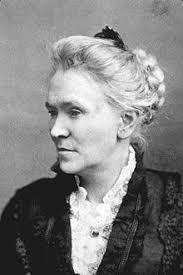
Gage
Gage was a freethinker whose battle for women’s rights targeted religion, with all its patriarchal ideas. Indeed, Christianity was the most powerful force opposing female suffrage.
Gage’s son-in-law was L. Frank Baum, author of The Wizard of Oz — which Boland called a freethought fairy tale, telling us that everything we need is already inside us. (No need for that fraud behind the curtain!)
The bus tour included Gage’s house in Fayetteville, as well as, in Peterboro, the Gerrit Smith site and the National Abolition Hall of Fame.
Another program centered on D.M. Bennett, publisher of a freethought periodical, The Truth Seeker, who in 1879 fell victim to “anti-vice” pervert Anthony Comstock, being imprisoned for mailing obscenity — a book of conjugal advice. Whose author President Hayes pardoned. But, bowing to church pressure, he wouldn’t pardon Bennett.
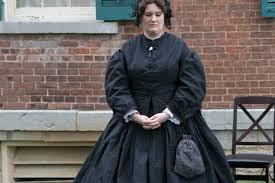
Grube as Stanton
We also had two costumed dramatic impersonations. Melinda Grube channeled Stanton (Gerrit Smith’s cousin). A focus was how her life was shaped by her brother’s death in youth and her father’s inability to take equal pride in her, being the wrong gender. “She couldn’t change her father, or herself, so she’d have to change the world.” Like Gage, Stanton saw women’s oppression rooted in Christianity and the Bible; she authored The Woman’s Bible with plain English explanations of its pernicious passages relating to women.
Margaret Downey gave us Eva Parker Ingersoll, Robert’s wife, focusing on their love story. She quoted from a letter he wrote to Eva: “The world is getting free. I thank God every day that he does not exist.”
After dinner, the keynote speech was by Susan Jacoby, Ingersoll biographer and author of several other books (one of which I recently wrote about). Her theme: what would Ingersoll think of today’s America?
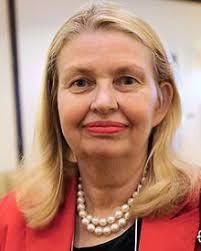
Jacoby
Jacoby stressed Ingersoll’s linking religion’s rejection of reason with the whole spectrum of social issues like women’s rights and immigration. Yes, he was enlightened even on that, battling against the onset of immigration restrictions with the 1882 Chinese Exclusion Act. As ever, his argument was moral: Chinese are human beings who should be treated the same as any other. “A great nation,” he said, “should be bound by the highest conception of honor and justice.” (Funny how believers insist morality comes from religion, when so often religious dogmas make them morally blind.)
Jacoby sees increasingly successful efforts by today’s religionists to undermine church-state separation, using protection of religious freedom as a wedge, twisting it into a right to impose their beliefs on others. She said Ingersoll may have been too optimistic about science’s ability to overcome all this.
The word “tribal” has been invoked a lot in analyzing Trump support. Jacoby sees that tribalism as being animated more by religion than anything else (such as economic concerns). It’s a fact that the 40% of Americans who back Trump are largely the same people who are Christian fundamentalists. And just as religious faith works to seal people off from reality checks, the same seems true in the political realm, with Trumpism more like a faith cult than a mere political viewpoint.
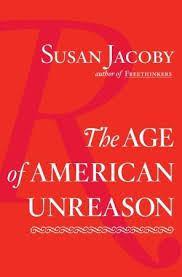
This too shall pass
Is there hope? Yes. One writer recently called the religious right’s ascendancy “a cultural stab from the grave,” demographically speaking. Throughout the rest of the developed world, Christian religion is in sharp retreat, with belief and churchgoing collapsing. In America, the younger you are, the less religious you are apt to be. The religious right’s flame will ultimately burn out. In the long run, reason will defeat unreason.
Advertisements